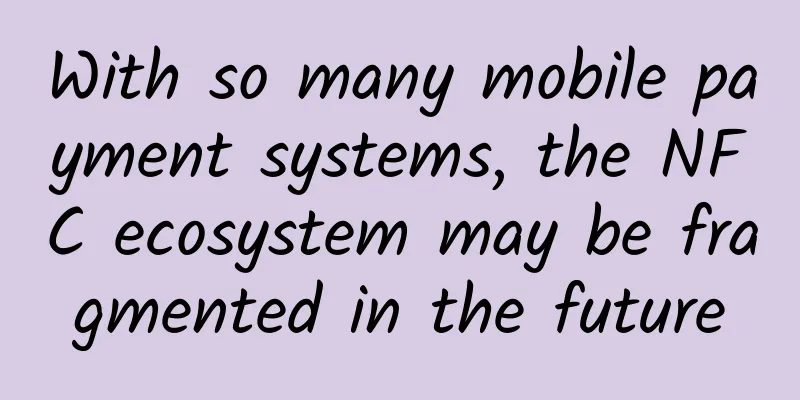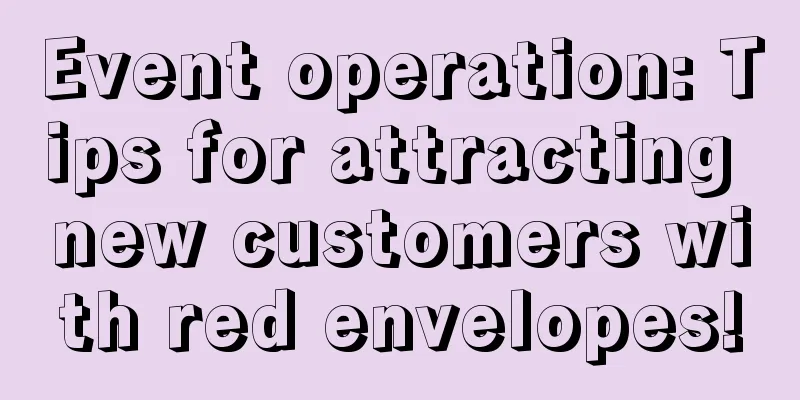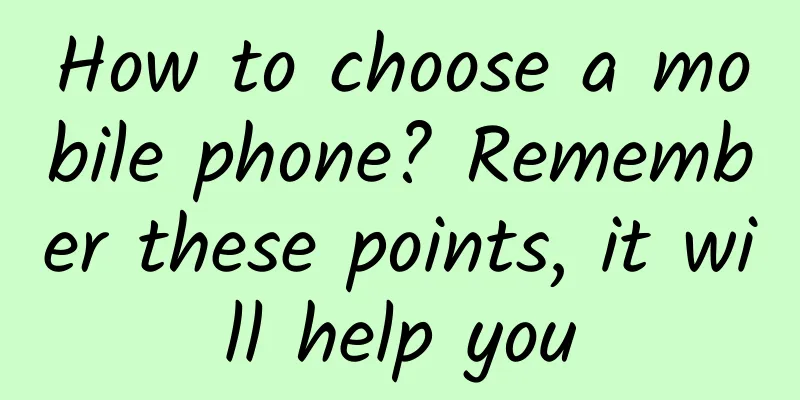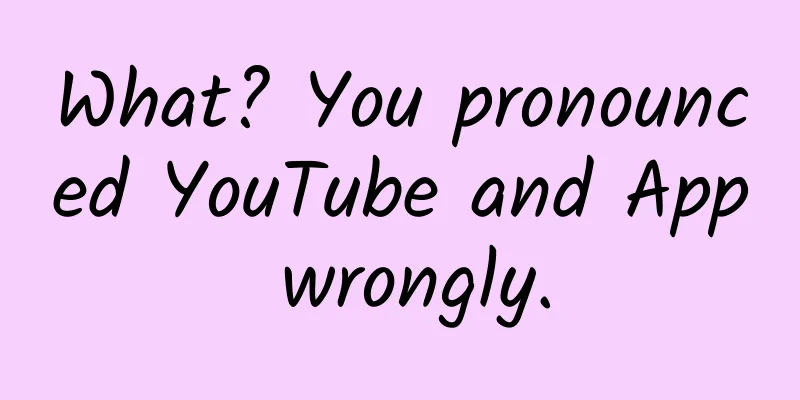With so many mobile payment systems, the NFC ecosystem may be fragmented in the future

|
Editor's note: We live in a great era: when we leave home in the morning, but accidentally leave our wallet at home, you don't have to worry at all, because you can spend the whole day smoothly with just your mobile phone. We can use our mobile phones to buy food, take public transportation (or private transportation), buy goods, etc., and the whole process does not require any contact with paper money and credit cards. However, just like every coin has two sides, everything has its pros and cons. Although mobile payment is very cool, we also need to pay some costs. Apps, Apps, Apps Everywhere
The cost of living that cashless payment brings to us is the need to deal with a large number of apps. Walmart, Dunkin Donuts, Steak N' Shake, Subway - every retail restaurant company seems to have its own app and payment system. You need to learn how to use each app step by step, and often maintain the user settings in these apps. These cumbersome steps are indeed annoying and affect the user experience. Therefore, consumers seem to need a universal payment solution, and one of them is very competitive, that is NFC payment. This payment method and independent payment platform can support Android Pay and Apple Pay, so it can be applied to most users. For consumers, the only difference in NFC payment is the operating system, but the application scope of this technology is actually very wide.
(Note: NFC payment refers to the use of near field communication technology (Near Field Communication) by consumers when purchasing goods or services through mobile phones and other handheld devices to complete payment. It is an emerging mobile payment method. The payment is processed on-site and offline. It does not require the use of mobile networks, but uses NFC radio frequency channels to achieve local communication with devices such as POS cash registers or vending machines.) The NFC payment system ecosystem may be fragmented in the future
The 2017 International Consumer Electronics Show (CES) is coming soon, and I believe that many payment system providers will launch contactless payment systems, but the only problem is that these manufacturers are likely to launch their own NFC payment systems, and will not be tied or integrated with Android Pay or Apple Pay. In other words, the current NFC payment industry is becoming fragmented, which is not necessarily a bad thing, but for now, it seems to do more harm than good to consumers. Therefore, the future is likely to leave us with a chaotic payment system. In fact, a similar situation has occurred in the credit card market. I believe that each of us now has several credit cards in our hands, and we are often confused about which credit card to use for payment. Therefore, nothing can be better than putting all supporting systems (even the existing NFC payment system) on the same platform, but to be honest, this may just be a daydream, because as it stands now, the entire payment industry is on the verge of getting out of control. However……
Isn't the current strange phenomenon in the payment system industry caused by technology? To give an inappropriate example, as ordinary users or consumers, what we like to do most is often to throw things against the wall as much as possible to see what will stick to the wall. In other words, if we don't try as much as possible, we may not be able to develop the best technology. However, once the technicians do this, it will bring a lot of inconvenience to ordinary users like you and me. Of course, using mobile phones to make payments has expanded our mobile lifestyle, and everyone can experience this complex situation for themselves. If this maze of apps and services gets people used to the concept of mobile payments, then that’s a good thing. As a concept, mobile payments should be encouraged and advocated. Apps, electronic cash, and QR code payments are all different concepts of mobile payments. If we want to introduce consumers to the world of mobile payments, then we need to meet two conditions: sustainability and universality. In fact, we need to explore the daily lives of ordinary people and integrate mobile payments into them. Only then will we see mobile payments being widely used, perhaps through apps, QR codes, NFC or other technologies, but as people working in the technology industry, we have the responsibility to find the answer. |
<<: iOS 10.2 may cause more iPhones to suddenly shut down
>>: AR red envelopes were cracked. What else did Alipay say besides technology upgrade?
Recommend
KOL marketing campaign strategy!
KOL marketing /influencer marketing is a marketin...
vivo S6 mobile phone review: a four-camera phone with super long standby time in the 5G era
Although the dividends of the current smartphone ...
3 steps to teach you how to operate a good community
Community operation has become the core business ...
Qihangge live broadcast of the order explosion laboratory [updating]
I feel that live streaming is increasingly diffic...
National Hair Care Day | Dandruff, itchy scalp, oily scalp, hair loss? These ten problems should be known early
Original source: Xinhuanet WeChat official accoun...
New energy vehicle exports surged 151%, and European subsidy policies attracted automakers to go overseas
In recent years, my country's new energy vehi...
Evolution and disruptive innovation of the 5G private network market: Q1 2022
Participants take partnerships and strategy more ...
Wearing masks is no longer mandatory on the subway in this city, but experts remind you: three types of people cannot take them off yet!
On March 29, according to a report by Southern Me...
Want to build a quality community? You need to give your users a sense of superiority!
All gatherings of people formed because of content...
How to use the WeChat homestay mini program function for booking and checking in homestays?
Some time ago, many customers consulted the edito...
Having gone through nine years of compulsory education, you can also call him teacher!
The Mid-Autumn Festival coincides with Teachers&#...
6 truths about Taobao short videos!
Double Eleven is coming soon, and Taobao is makin...
A rare fungus is spreading in the United States! Will it cause a global spread?
The Centers for Disease Control and Prevention (C...
Helplessness and ignorance: Why does Qualcomm repeatedly attack Meizu over patents?
After Qualcomm sued Chinese mobile phone manufact...








![[Case] How to promote mobile medical APP in an embarrassing situation!](/upload/images/67cc3dc020041.webp)
